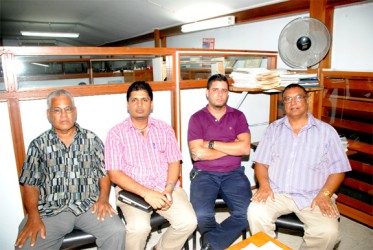Senior officials of the West Demerara Chamber of Commerce have told Stabroek Business that the strength of the links created between Georgetown and the business community west of the Demerara River has left the economic fortunes heavily dependent on the creation of a more secure means of traversing the Demerara River.
According to Chamber President Sase Shewnarain the removal of the uncertainties associated with the considerable lack of confidence in the 35-year-old Demerara Harbour Bridge could transform Region Three into an economic engine.

Shewnarain said the chamber could not help but be concerned over the extent to which linkages, including economic ones, between Georgetown and West Demerara communities are totally dependent on a bridge across the river that is providing service 15 years beyond its projected life.
Late last year, Works Minister Robeson Benn told the media that a feasibility study into the construction of a new bridge across the Demerara River had been completed and it had been determined that the new bridge would be constructed close to the existing one. In January, President Donald Ramotar had announced that government was seeking to build the new bridge before 2014.
The chamber delegation which comprised Shewnarain along with Vice-Chairman Ramesh Sugrim, Treasurer Safraz Khan and Assistant Treasurer Andy De Jesus recounted several instances in which problems associated with the efficient functioning of the bridge had created serious inconvenience and concerns among business enterprises in Region Three. Sugrim, whose business enterprises include a petrol station, told Stabroek Business that petrol stations in the region are continually concerned over the likelihood of fuel tankers becoming ensnared in the cessation or even the reduction of vehicular traffic across the river in the event of a problem.
Shewnarain said the chamber was concerned that in the period ahead the uncertainties associated with the Demerara Harbour Bridge might result in a slowing down of investment in the region. “Investors are well aware that the bridge has now been operating way beyond its expected life,” Shewnarain said.
And according to him the concerns associated with the reliability of the Demerara Harbour Bridge go beyond those that are being expressed by the business community. He noted that with some of the biggest housing development projects being undertaken in Region Three, an increasing number of householders were “moving house” to locations across the river. “What we now have is a situation in which an increasing number of persons residing in Region Three are crossing the bridge to get to work on the other side,” Shewnarain said, adding that the implications of a less than effective crossing are disturbing.
Khan told Stabroek Business that the uncertainties regarding the continued reliability of the bridge aside, there was also the irritant factor and the loss of time and money associated with those occasions when the movement of traffic was limited, resulting in lengthy waiting periods for traffic crossing from one side to another.
Meanwhile, the chamber members said they were satisfied with the growth of Region Three as an area of economic significance despite their concerns over uncertainties associated with the river crossing. Shewnarain said that he had noted “mild growth in the economic environment” last year compared with 2011.
Both Khan and Sugrim said that growth and expansion of commercial activity in Region Three had been attended by several disturbing practices including encumbrances associated with vending. Sugrim said that access to his own business premises continued to be limited by vendors and the practice had persisted despite his best efforts to have the situation corrected. “The problem is that the laws are not enforced effectively,” Sugrim said.





